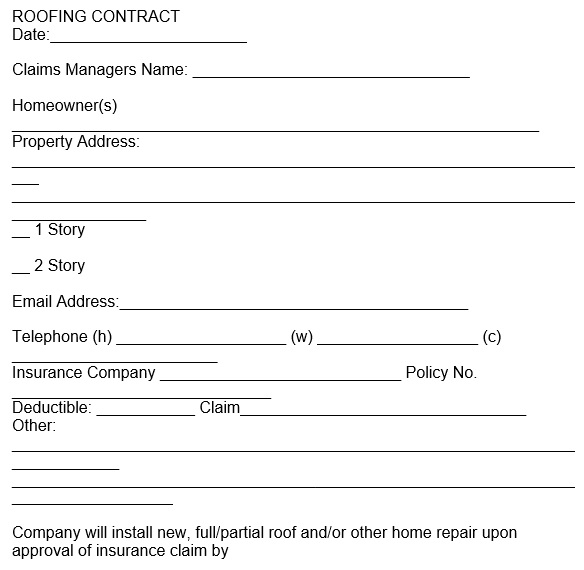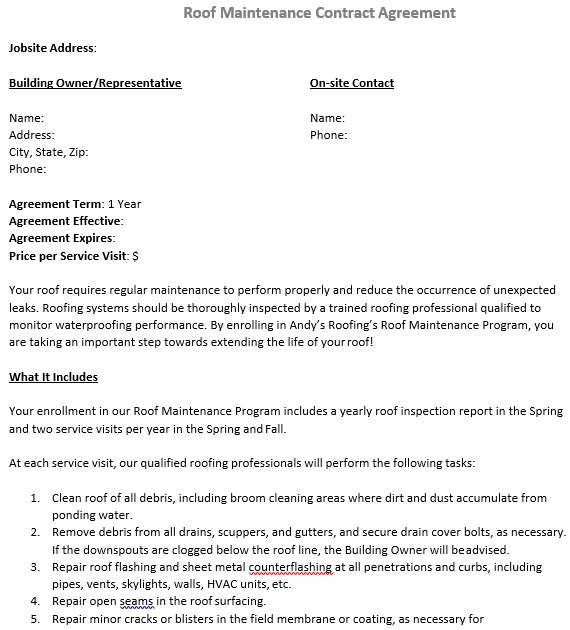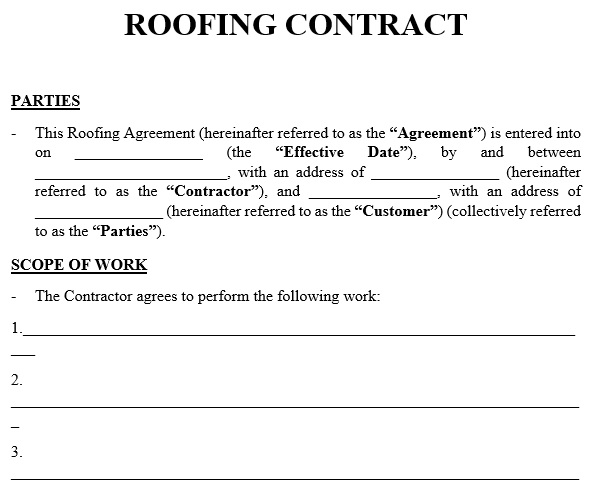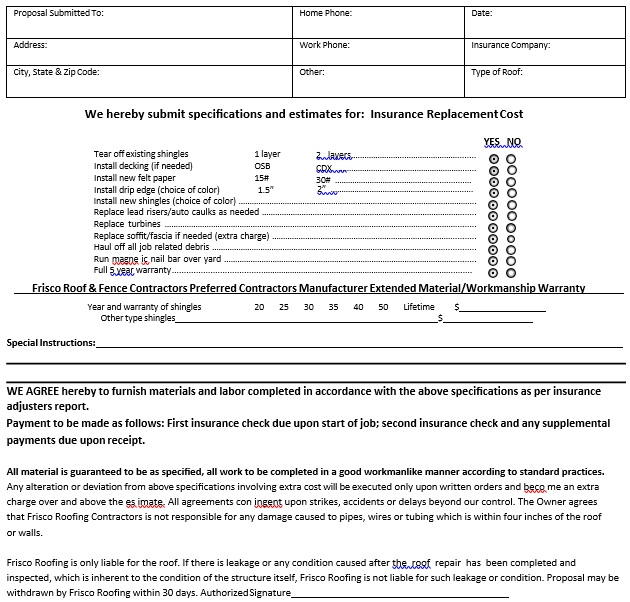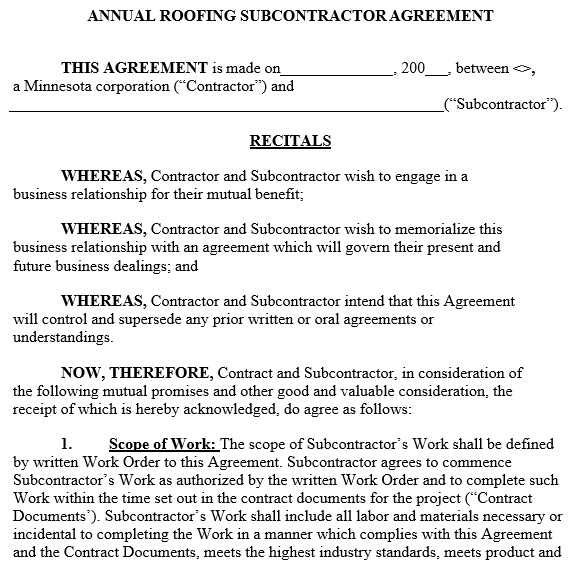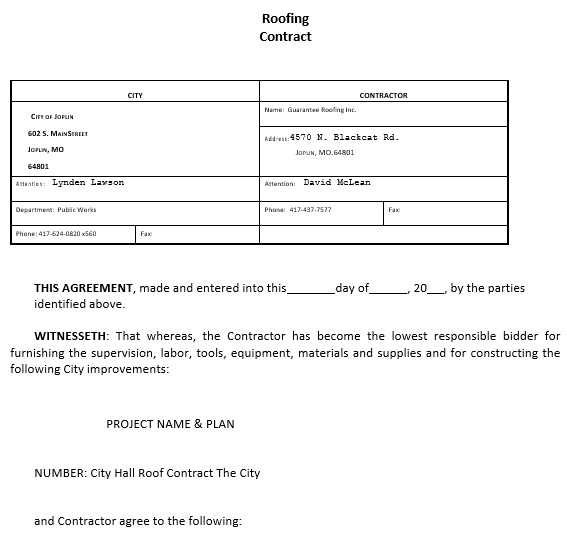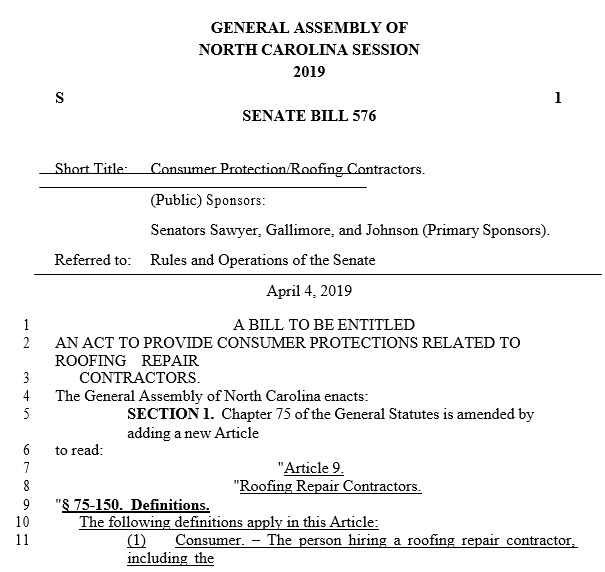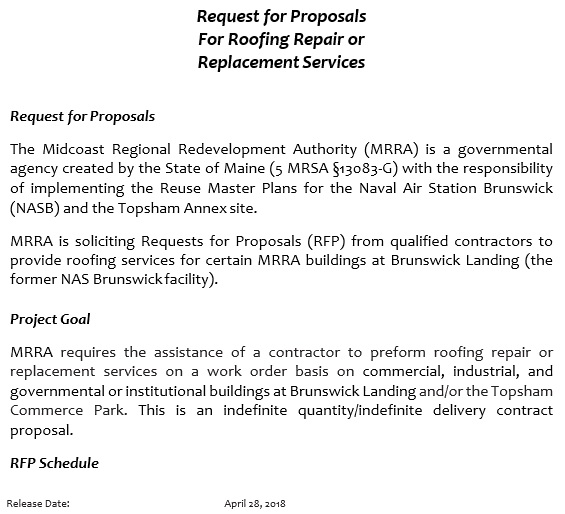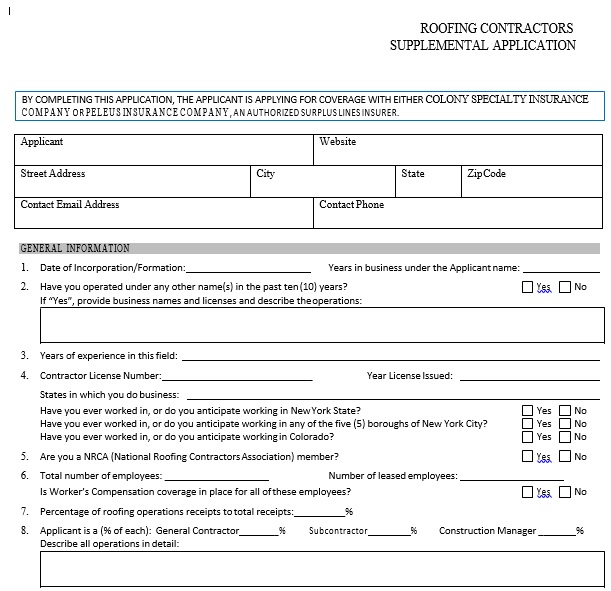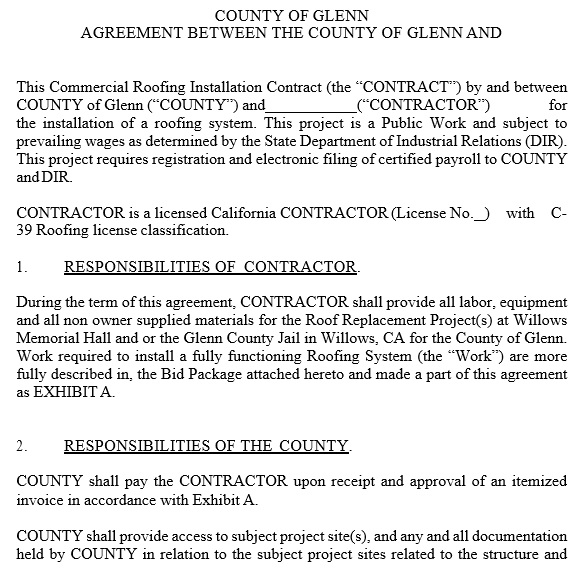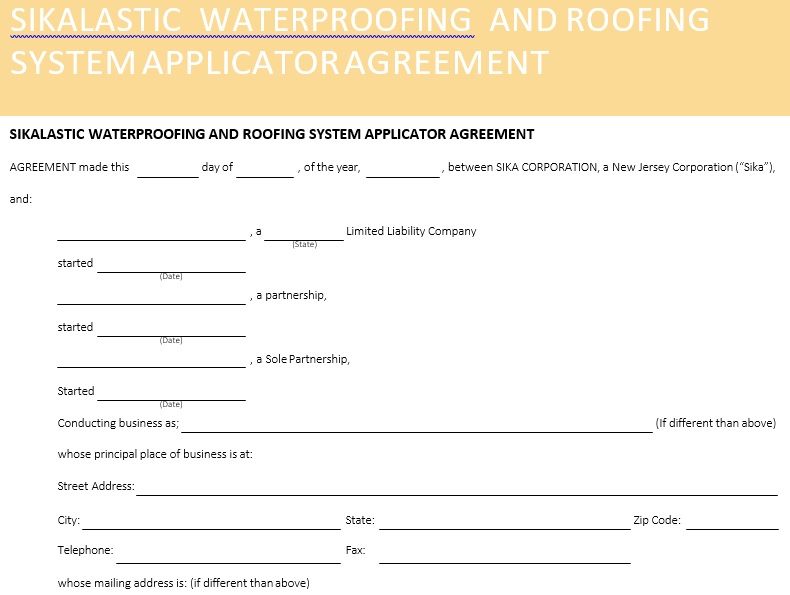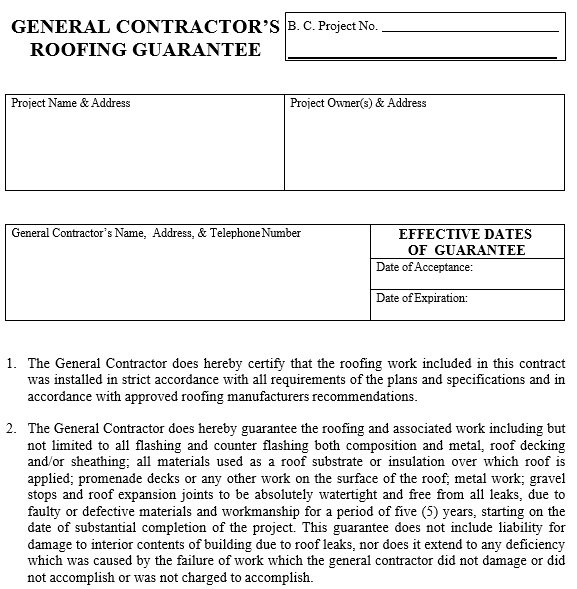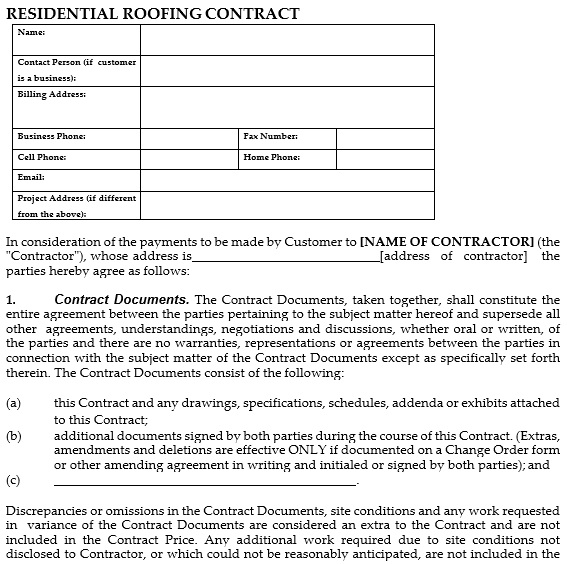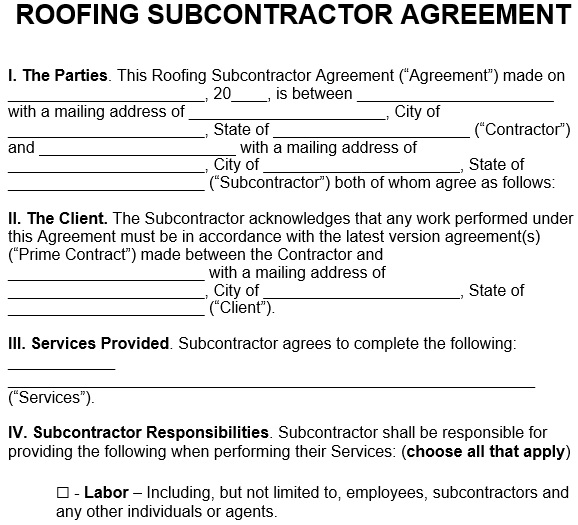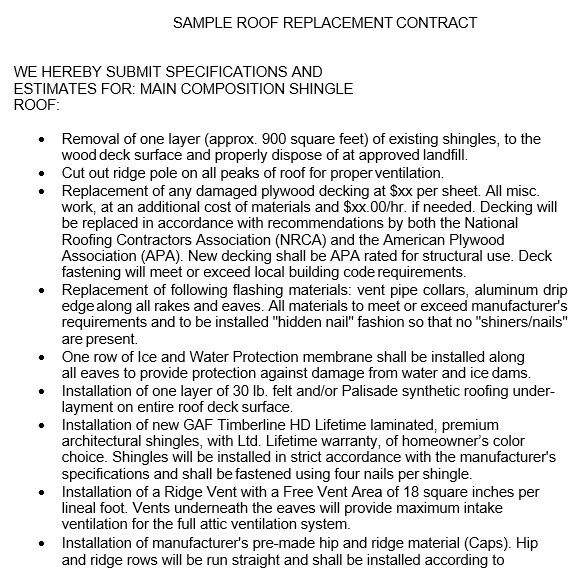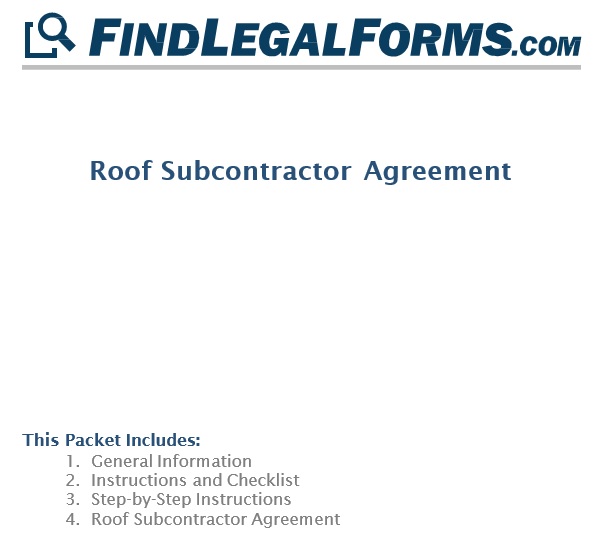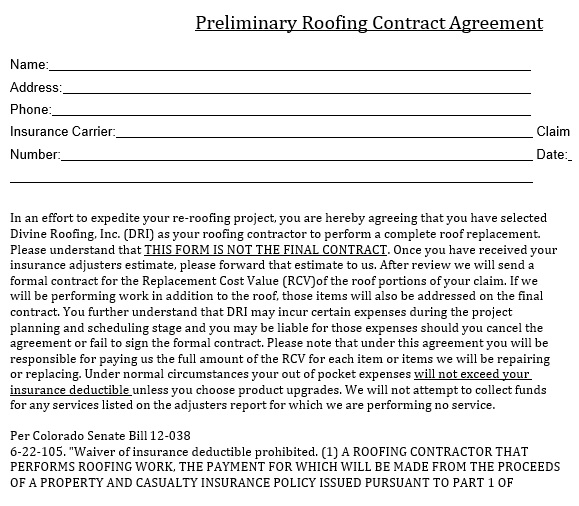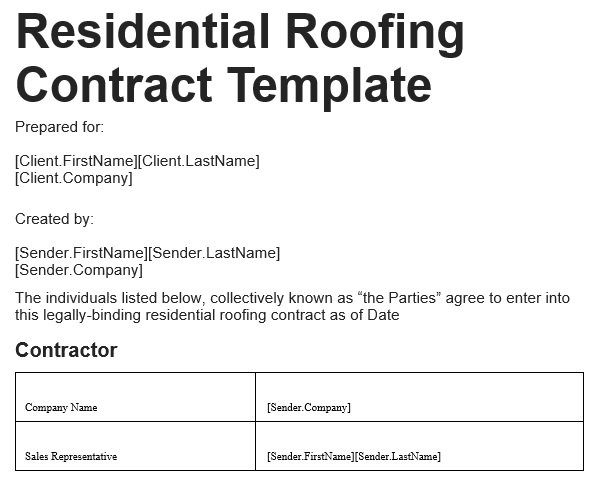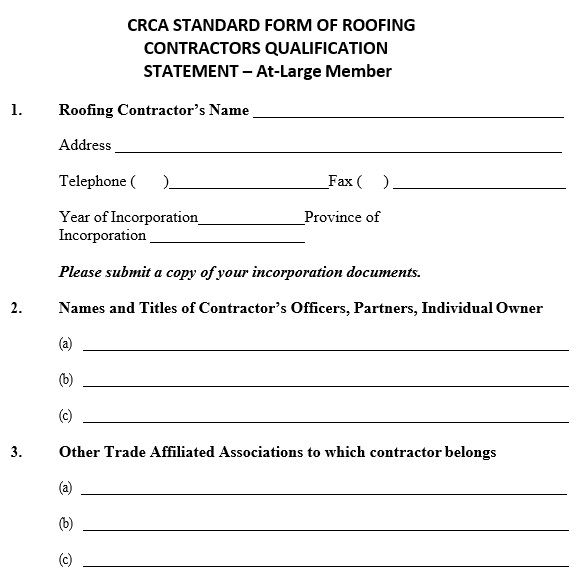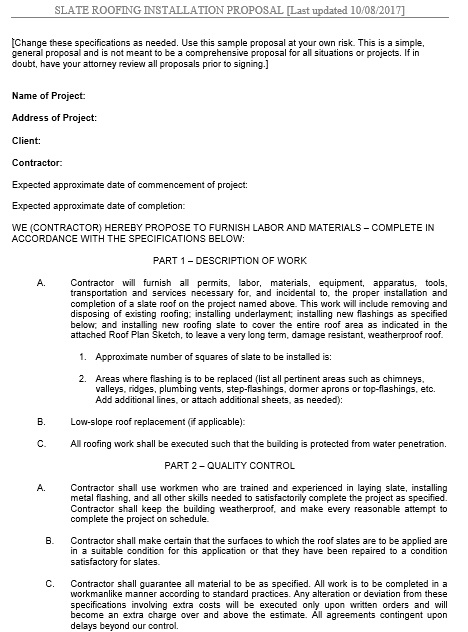A roofing contract template is an agreement between a roofing company and a homeowner. It should be comprehensive and professional that includes all the essential details. Generally, all roofing contracts are relatively straightforward.
Table of Contents
- 1 What is a roofing contract?
- 2 How to negotiate a roof contract and write it?
- 2.1 Roofing company details:
- 2.2 A certificate of insurance
- 2.3 Scope of work
- 2.4 Job duration
- 2.5 Procedures
- 2.6 Materials
- 2.7 Itemized list
- 2.8 Waste removal
- 2.9 Deposit
- 2.10 Payment methods and due dates
- 2.11 Workmanship warranty
- 2.12 Certification by manufacturers
- 2.13 Additional costs
- 2.14 Contract termination
- 2.15 Negotiations
- 2.16 Proofread
- 2.17 Print and sign
- 2.18 Documents to accompany the contract
What is a roofing contract?
The roofing company, in a roof replacement contract or a roof repair contract, makes an offer. Then, the homeowner decides to accept it or not. In case, they accept it, the roofing company and the client sign a written residential roofing contract. A residential roofing contract is a legally binding agreement between a roofing company and a homeowner. When both parties sign it, it becomes enforceable in a court of law. Furthermore, it includes the details like;
- the scope of the work
- the duration of the job
- materials to be used
- deposit and payment schedule
There is no safety without a written contract. By having a written contract, roofing companies can gather payment or defend against claims. A written contract provides clients the peace of mind that they are dealing with a legitimate business. It is a way to hold roofing contractors accountable if they fail to deliver.
How to negotiate a roof contract and write it?
You should include the following details in your written contract;
Roofing company details:
A roofing contract should include the following basic details about the roofing company;
- Registered name
- Physical address
- Contact details
- License number
- Workmen’s compensation number
- Client details
The roofing contract should also include;
- Name
- Address
- Tel number
- Email address
- Address where work will be done
- A license to operate
A certificate of insurance
To cover accidents on site, roofing contractors also need insurance. This prevents clients from being liable for any injuries that happen on the property. A copy of the certificate of insurance should also be displayed along with the contract. You can also create it if the client asks to see it.
Scope of work
The scope of work defines exactly what requires to be done. It also states that what materials and labor are necessary to do the work. In case, to remove an old roof, the contract should also contain details regarding the removal of the old roof and installation of the new roof.
Job duration
Most roofing jobs do not take too long. But, for the homeowners, they are inconvenient so it is important for them to know how long they will take. On the basis of the year, what work is required and the workload of the contractor, job duration can vary considerably. A realistic time estimate is given by the experienced roofing companies. After starting, a job shouldn’t be interrupted without a very good reason.
Procedures
A standard roofing contract will usually include the following;
- working hours
- the installation method
- safety precautions
- a detailed schedule of when everything will happen
Materials
The estimates must contain all the materials and services that are required in the scope of work. Materials will have shingles and accessory products like leak barriers, vents etc. It is important to state the following;
- the brand
- official product name
- type
- color and price of products
- reference to any manufacturer warranties
Itemized list
For every aspect of a project, from material costs to labor, this list assists clients in knowing what they are paying. This makes them able to make comparison between the costs of items provided by different companies that they can’t have known about without the breakdown. Roofing contract templates will often contain a pricing table. This allows roofing contractors to give clients with detailed project costs.
Waste removal
Roofing is a messy job. A roofing contract should demonstrate how roofing companies plan to clean up the mess before they leave. Homeowners will have to cover the costs in case they don’t offer cleanup services.
Deposit
The contract should clearly explain how and when clients need to make payments. Keep in mind that an initial deposit along with progress payments shouldn’t equal more than 75% of the total job. To cover the entire job, there should never be an expectation of an upfront payment.
Payment methods and due dates
It is important to state what is needed from the client in terms of;
- deposits
- applicable taxes
- timelines for each payment
- the actions that will be taken in case the payment is not made at the required times
Workmanship warranty
The extent and period of warranty offered by the contractor should be clear mentioned in the contract. All limitations should be made clear so that clients are not under any misapprehensions.
Certification by manufacturers
In handling products or equipment, some manufacturers need roofers to be certified. You have to be certified guarantees. These state that the roofing company fully complies with suggestions created by product manufacturers about the installation and handling of products. You should also check Relationship Contract & Agreement Templates.
Additional costs
Before the installation of a new roof, any additional costs usually come from existing issues that roofers may have to fix. To cover unforeseen costs and how any ‘change orders’ can process and paid, the contract should include an estimate.
Contract termination
The contract should explain that what happens in the event of a contract termination. It should explain notice period and what occurs in terms of costs on termination.
Negotiations
If you don’t know how to negotiate a roof contract then you need to know it in detail. The prices are always negotiable as certain aspects of a contract are impacted by state law. Before signing a contract, clients and roofing contractors will usually negotiate when it comes to prices. To better meet the budget requirements of the client, the roofing contractor should make some adjustments.
Proofread
In the end, proofread the contract and check for any important details that may have been missed.
Print and sign
To make the contract valid, print and sign it.
Documents to accompany the contract
Also, attach the copies of other documents with the contract such as copies of licenses, insurance and compliance, etc.

